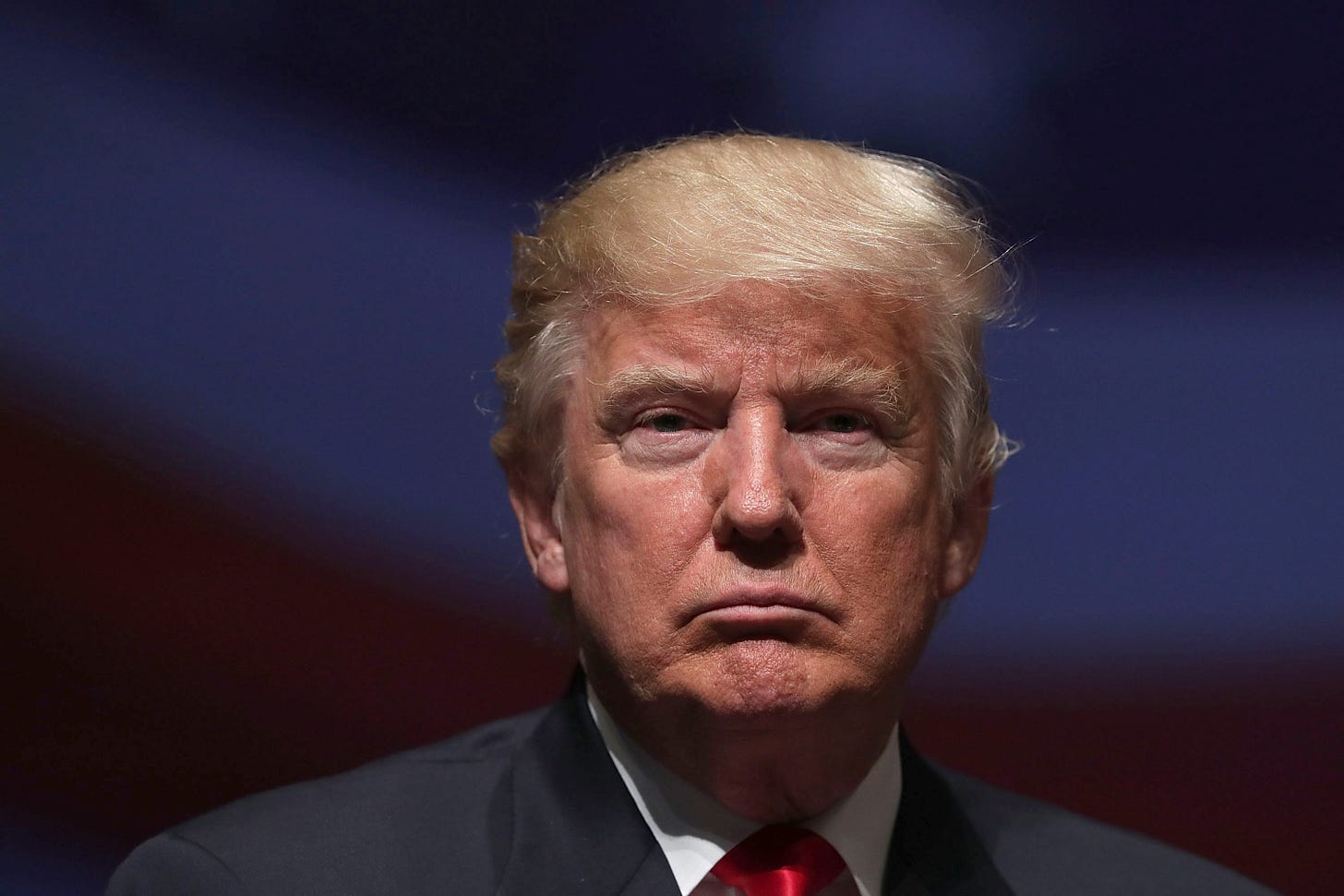Memo to Trump: The Whistleblower Is Not a Spy
And he didn’t commit treason.
In a perfectly normal development following the release of a memo describing his call with Ukrainian President Volodymyr Zalensky and testimony before Congress by Acting Director of National Intelligence Joseph Maguire, President Trump suggested Thursday that the whistleblower responsible should maybe possibly be executed.
“I want to know who’s the person who gave the whistleblower the information because that’s close to a spy,” Trump said Thursday. “You know what we used to do in the old days when we were smart? Right? The spies and treason, we used to handle it a little differently than we do now.”
The Los Angeles Times has released audio of Trump's comments:
It's hard to tell, based on the audio, if the person the president is accusing of espionage is the whistleblower, the person who gave the whistleblower the information that resulted in the complaint, or both. It can be hard to tell what the eff the president is talking about lately, but either way, he's accusing American intelligence personnel of spying. According to some reports, the whistleblower could be a CIA analyst who had been assigned routine duty at the White House. In the complaint, the whistleblower explains how they became privy to information to which he/she was not a direct witness: "The information provided herein was relayed to me in the course of official interagency business. It is routine for U.S. officials with responsibility for a particular regional or functional portfolio to share such information with one another in order to inform policymaking and analysis."
Routine to some, capital offense to those who have no idea what they're talking about. “What we used to do,” probably means execution in Trump’s mind, though it’s been decades since an American was executed for espionage. The highest-profile spies caught by American authorities in the last half-century, Aldrich Ames and Robert Hanssen, are both serving life sentences. Ames sold out Russians who were spying for the United States, leading to their deaths, and Hanssen gave the Russians thousands of pages of U.S. nuclear secrets.
So it is absolutely bonkers to hint at the death penalty for someone who is plainly not a spy. The president is confused about when revealing classified information is espionage and when it isn’t, so here’s a handy reminder:
(1) If it’s classified information, and you give it to a foreign government, that’s spying.
(2) If it’s classified information, and you give it to authorities authorized to view classified information (such as the intelligence community inspector general), and those authorities give it to the congressional committees who are authorized to view classified information, and this all happens according to the letter-slash-spirit of the law governing whistleblowers in the intelligence community, and then later the president decides to declassify the information because he doesn’t understand exactly how politically damaging it is, that’s not spying.
See? It’s not so hard.
And the whistleblower didn't commit treason, either. Because the Founding Fathers were concerned that “treason” had a slippery definition under British rule, they defined it in the Constitution itself: “Treason against the United States, shall consist only in levying War against them, or in adhering to their Enemies, giving them Aid and Comfort. No Person shall be convicted of Treason unless on the Testimony of two Witnesses to the same overt Act, or on Confession in open Court.”
By that definition – the only definition that counts – the whistleblower also hasn’t committed treason. So everyone stop with the treason-death-penalty-kill-my-political-opponents talk.
If Trump is frustrated that the whistleblower complaint resulted in embarrassing, classified information coming out, he has only himself to blame. After all, he’s the one who declassified it. The whistleblower went to great lengths to keep the secret parts of the complaint secret, writing, “I have endeavored to apply the classification standards outlined in Executive Order (EO) 13526 and to separate out information that I know or have reason to believe is classified for national security purposes.”
If Trump wanted to complain that somehow the whistleblower mishandled classified information, he’d have to point out how the rules for classification were misapplied, or how some other set of rules should have been followed, or something reasonable like that.
More importantly, he’d also have to explain how what the whistleblower did was wrong, but his own routine violations of classification protocol are very legal and very cool. He could start by explaining why he tweeted a photo of a satellite surveillance photo of an Iranian missile launch site. Or when he blabbed to Philippine president Rodrigo Duterte about the locations of American ballistic missile submarines in the Pacific. Or when he publicized the identity of the Manchester bomber and a picture of the bomb before the British were ready to disclose the information. He’d also have to explain why he divulged classified information to a foreign government. (See point one above.)
But President Trump isn’t in the mood for explaining. Just Wednesday, he insisted he’d done nothing wrong during his “absolutely perfect” phone call with Ukrainian President Volodymyr Zelensky. Which makes his call now for the death penalty somewhat suspect.
If the president acted with utter propriety -- and not only does he say he did, but the ever-honest Lindsey Graham assures us that the declassified documents back him up, then there’s no reason to be advocating deadly retribution against the whistleblower, who must be cowed and embarrassed.
Right?



